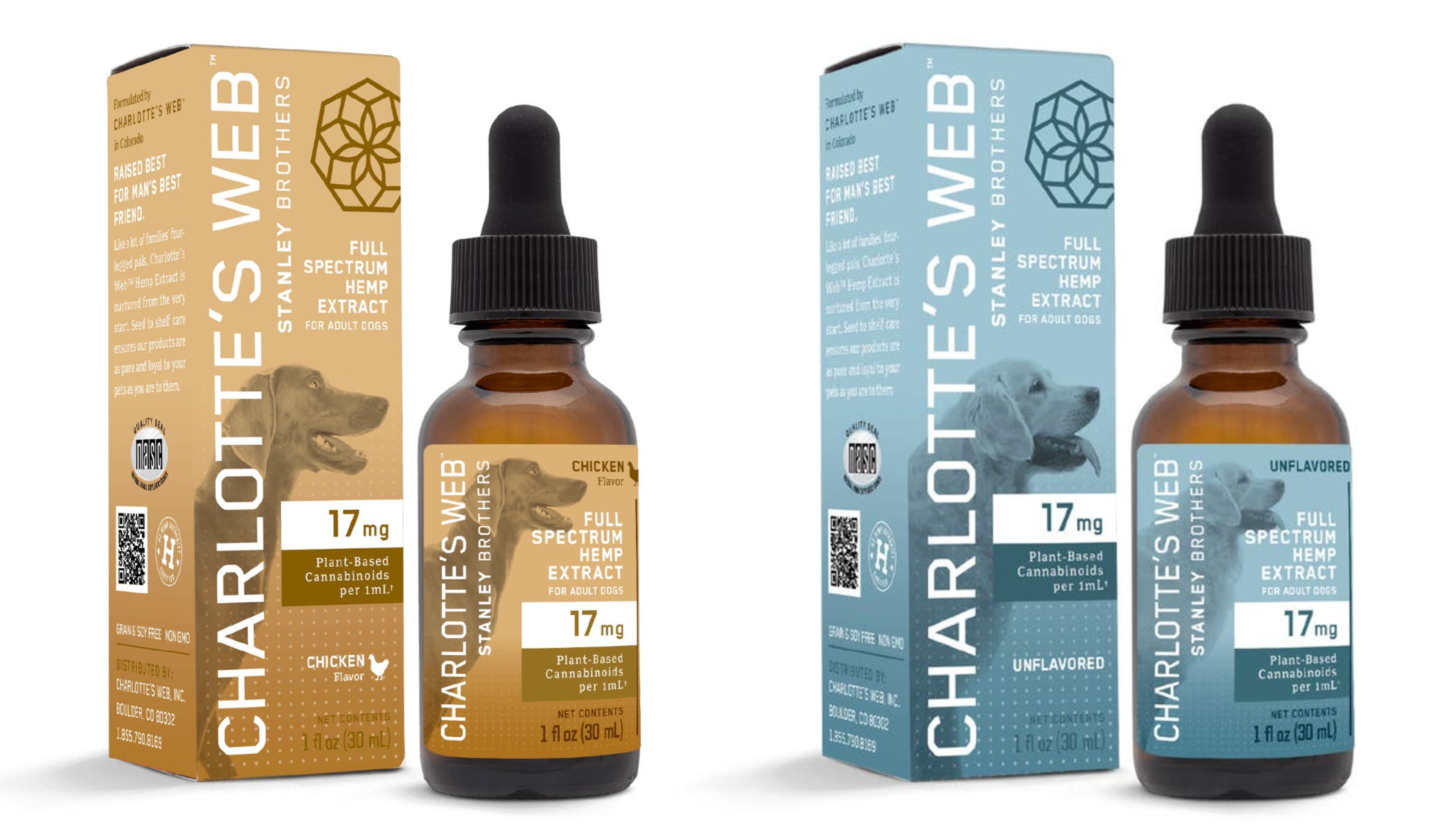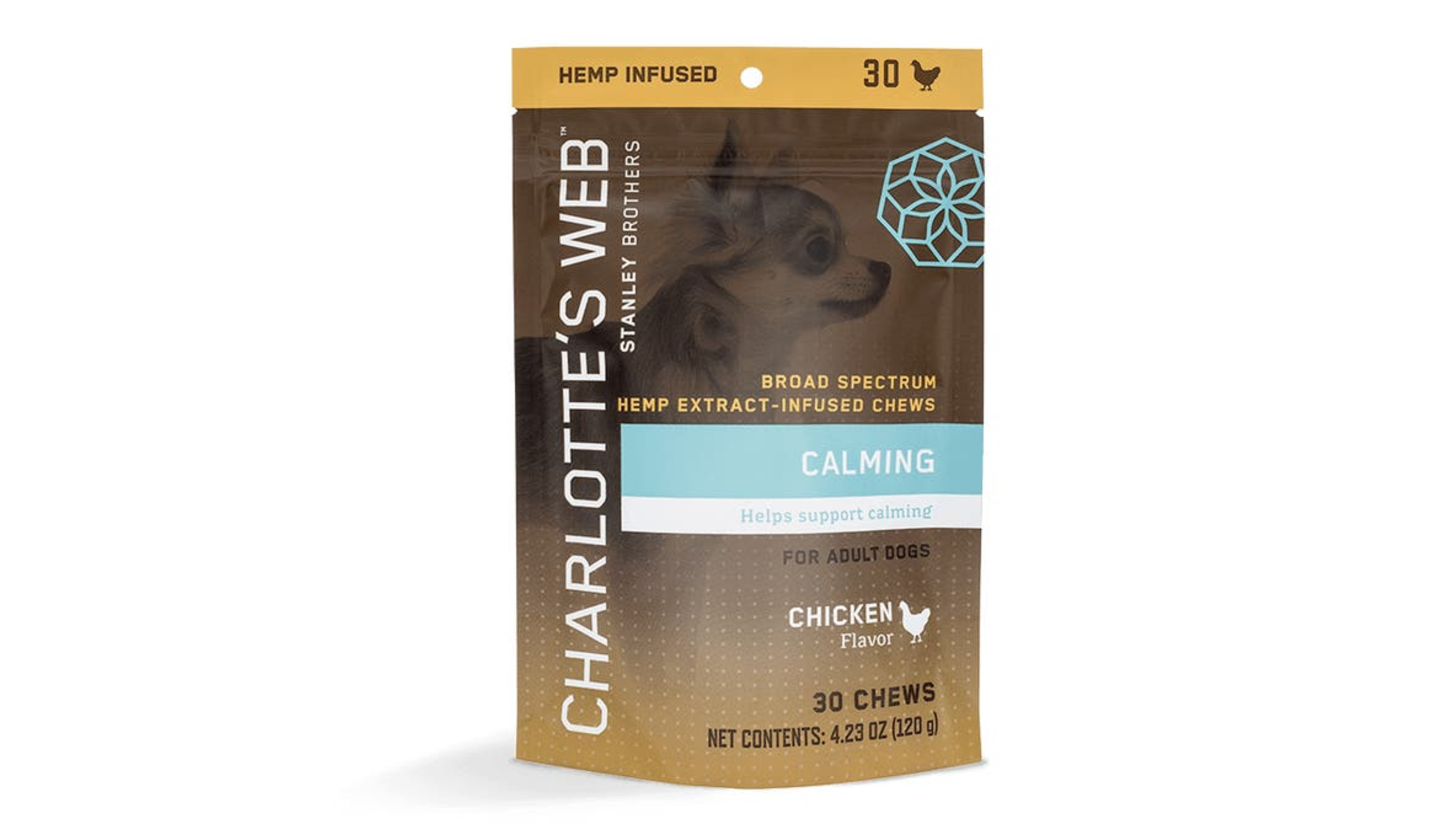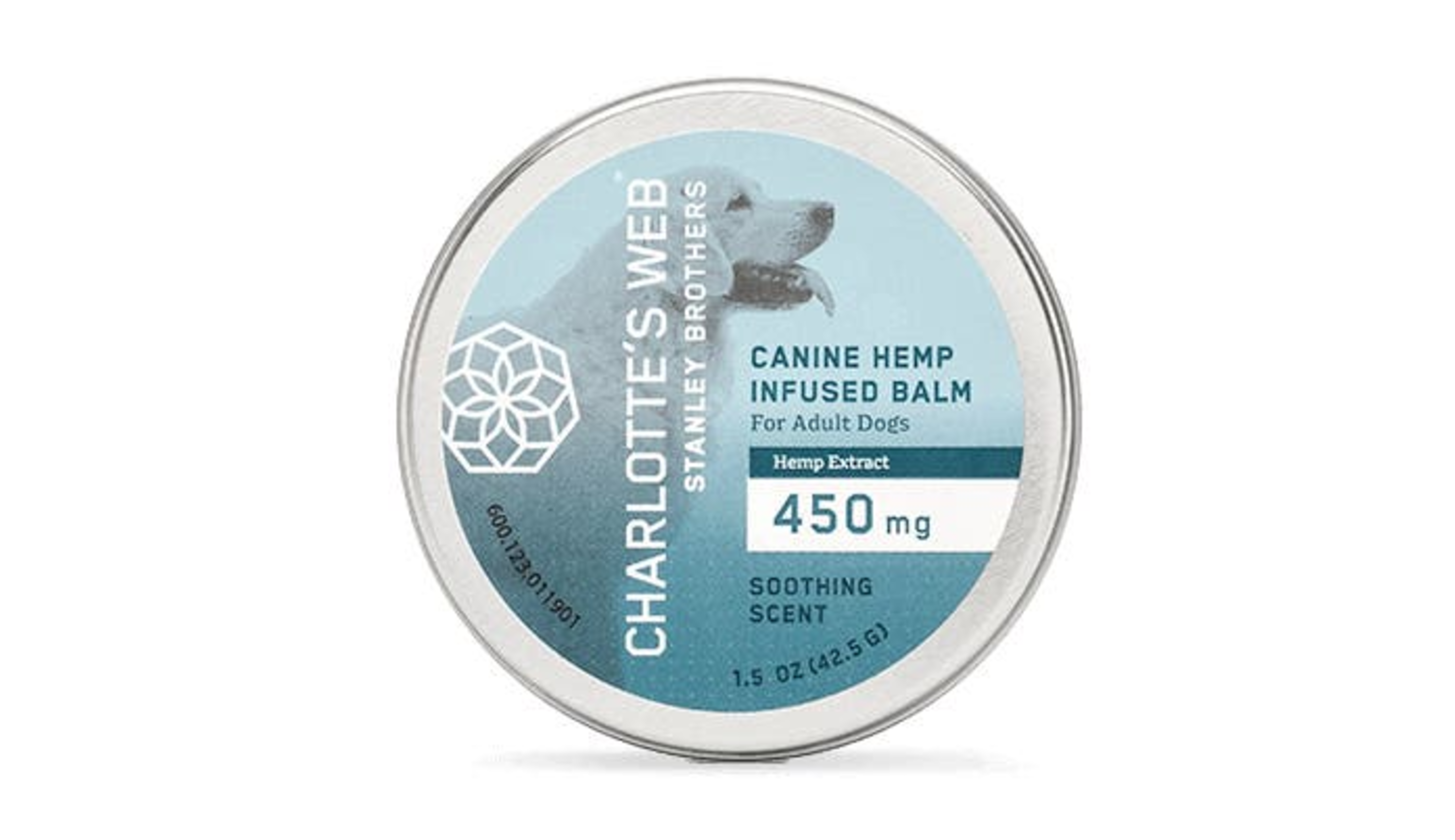Have you jumped on the pandemic puppy bandwagon? Or has your long-time dog been the one holding the household together during these strange times? Either way, you might be finding yourself spending more time with your furry friend than ever before, which means more time getting to know what riles them up and sets them off. While getting them to a ten may be as easy as a squeaking duck toy (or a particularly great stick), bringing them back to a one may be harder to figure out. Consider adding full-spectrum hemp extract with cannabidiol (CBD) to your dog’s routine. With so many products available for humans, it’s only fair to give man’s best friend a shot at experiencing the benefits of hemp-derived CBD.
What is CBD?
First, let’s start with a primer. CBD is a chemical compound produced by the cannabis plant. But don’t get ahead of yourself: people often mistakenly use terms related to cannabis interchangeably. Hemp and marijuana are both plants in the cannabis family that contain chemical compounds called phytocannabinoids. The two most well-known are the non-intoxicating (and fully legal) CBD, and tetrahydrocannabinol, a.k.a. THC—the only phytocannabinoid that can get you high.
Hemp and marijuana contain both of these naturally-occurring compounds at varying levels. In contrast to marijuana, hemp plants not only have higher levels of CBD, they also have naturally lower levels of THC. In fact, hemp extract legally must contain no more than 0.3 percent THC, which is why it is often associated more with CBD. But these aren’t the only compounds you might find in hemp extracts. Some companies, like Charlotte’s Web, are using science to make more complete hemp-derived supplements. For example, Charlotte’s Web’s proprietary, non-GMO hemp includes a full spectrum of naturally occurring terpenes, flavonoids, and other valuable compounds that work synergistically to heighten positive effects.
How Does CBD Work For Dogs?
Underneath that furry exterior, dogs have a lot more in common with people than you might imagine. All mammals are biologically equipped with an endocannabinoid system (ECS) that produces its own cannabinoids called “endocannabinoids” (the prefix just means they are produced inside the body instead of from a plant). Regardless of whether or not someone uses or has ever used cannabis, everyone produces these chemicals naturally.

Scientists are still trying to understand all the functional benefits of ECS within the body, but what we do know is that it plays a major role in maintaining homeostasis. This means that in the face of challenges or stressors, the ECS helps keep the body’s internal processes optimal and stable. When introduced into the body, CBD, along with many other naturally occurring compounds contained within hemp extract, works within our ECS. Because these physical systems are the same between dogs and humans, CBD has the potential to be helpful to a dog’s well-being in the same ways that it can be for people.
Can CBD Help Calm My Dog Down?
There’s nothing worse than seeing that frantic look in a dog’s eyes when there’s a thunderstorm rolling through, or hearing their anxious barking behind you as you head out of the house for the day. Noise and separation can be extremely distressing to your dog (and let’s face it, to you, too!).

Studies on humans and rodents have shown that CBD can have a calming effect—and because humans, rodents, and dogs share the same ECS, it’s not unreasonable to expect that CBD products can help provide that same sense of calm or help mitigate stress-induced behaviors in our canine friends as well.
Does CBD Support My Dog’s Health In Any Other Ways?
As dogs age, both their body and brain functions can start to show signs of decline. They might not chase after that ball as willingly, and you might find them expressing their discomfort in subtle ways. Some studies suggest that a decline in endocannabinoid production might play a role in human brain health—which means, thanks again to our matching ECS, CBD may have the potential to be helpful for maintaining immune function and brain health in dogs.
What Are the Best Types of CBD Products for a Dog?
For a dog, CBD is best absorbed through the oral mucous membranes—which means feeding them an oil-based product by mouth will be the way to maximize all those benefits.
CBD Oil can help support a healthy lifestyle for your dog. The whole-plant hemp extract drops ($59.99 for 30mL) from Charlotte’s Web feature a full spectrum of cannabinoids, in both unflavored and chicken-flavored options to please any picky pup.
Oil extracts in the form of tasty chews are also great, because they can include other active natural ingredients that complement the CBD. Plus, what dog will say no to a treat-sized snack? Charlotte's Web offers several chews that address different canine concerns.
To support a calm disposition for your dog, look for complementary herbs known as “nervines,” which can be nourishing and soothing to their nerves. Calming Chews for Dogs ($19.99 for 30 chews) include nervines like valerian root, passionflower, and chamomile to help keep your pet calm and relaxed, especially in situations that may cause anxiousness.
To support your dog’s cognitive health as they age, keep an eye out for products that contain essential fatty acids and antioxidants. Cognition Chews for Senior Dogs ($19.99 for 30 chews) include elderberry powder, DHA, EPA, and vitamin E to help support the central nervous system.
To support the health of your dog’s connective tissue and joints, seek out ingredients that can support a healthy inflammatory response. Hip & Joint Chews for Dogs ($19.99 for 30 chews) include glucosamine, turmeric, and chondroitin to help maintain healthy joints and flexibility due to normal daily exercise and activity.

For dogs with an itch they can’t scratch, a topical option might provide some relief. Topicals in the form of balms, creams, and gels are best for targeting specific areas of external irritation. Canine Hemp-Infused Balm from Charlotte’s Web is designed to support dogs with sensitive skin by helping to maintain normal skin moisture.
What Should I Look For When Choosing CBD Products for My Dog?
It’s important to find products specifically formulated for dogs, as some ingredients found in CBD products for humans, like xylitol or grapeseed oil, can be beneficial to humans but toxic to canines. While the variety of options for various dog health needs is great, you might also be surprised at what some companies put in their products. Synthetic ingredients, toxic solvents, and other contaminants have been found in CBD products on the market. Don’t risk it—keep an eye out for transparent ingredient lists, and pay attention to what’s on them. Some brands, like Charlotte’s Web, have a QR code on every product so you can link to test results for that product.
Another way to please your pet? Look out for the stamp of approval from the National Animal Supplement Council (NASC). The NASC Quality Seal, awarded only to manufacturers and suppliers that have passed a facility audit and comply with rigorous standards of quality, helps make the decision of what products to buy for your dog a little bit easier.
How Much CBD Can I Give My Dog?
The amount of CBD used in dog studies has varied. A Cornell University study that explored the effects of CBD on older dogs used 2.5 mg per kilogram, but just like people, every dog has its own unique tolerance levels. Dogs can be more sensitive to CBD than humans, so it’s best to start with a low serving size and build up to a higher amount if necessary—if too much CBD oil is given to a dog, then temporary drowsiness may occur. For any products based on weight, be sure to stick to the recommended serving-size guidelines on the label.
The liver is the organ that processes CBD, along with many pharmaceutical drugs. So if you are currently giving your dog any medications, you’ll want to consult with your vet to make sure you’re aware of any potential interactions.






